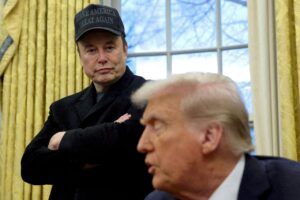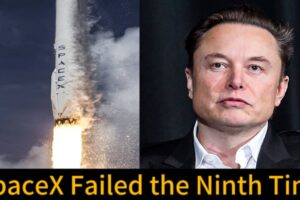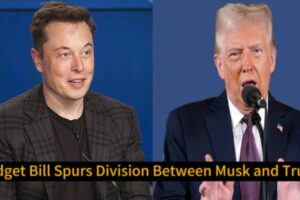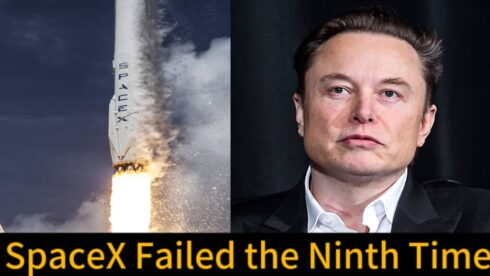SpaceX suffered another devastating blow as its Starship prototype exploded during its ninth attempt at an orbital flight, highlighting persistent design and operational setbacks. SpaceX launched the vehicle from its Starbase facility in Boca Chica, Texas, only to watch it break apart minutes later during stage separation, the critical point when the spacecraft and booster should have disengaged smoothly.
SpaceX described the test as a “partial success” despite the mid-air disintegration, but experts argue that recurring failures suggest more than just growing pains. Musk’s aggressive development pace and failure-tolerant philosophy may be hitting diminishing returns as the complexity of interplanetary travel demands more precision and less improvisation.
SpaceX Faces Public Backlash Amid Growing Safety Concerns
SpaceX’s repeated failures are beginning to chip away at public confidence, with safety concerns rising after the ninth consecutive test failure. Musk has positioned its culture around “failing forward,” but critics now claim the company is recklessly experimenting with high-risk technologies that endanger surrounding communities and ecosystems.
SpaceX is also under mounting regulatory scrutiny, with the Federal Aviation Administration (FAA) launching a new investigation to assess compliance with safety standards. Musk’s debris fallout, environmental impacts, and recurring explosion patterns are now central topics of debate, raising questions about the company’s accountability to the public and the planet.
SpaceX’s Billion-Dollar Dreams in Jeopardy as Investors Grow Uneasy
SpaceX is now facing pressure from major investors following the ninth Starship failure, with billions in capital tied to a vision that seems increasingly fragile. Musk’s valuation—hovering around $180 billion—is starting to look shaky as financial backers demand a more grounded strategy prioritizing deliverables over spectacle.
SpaceX must now contend with shareholder demands for better oversight, clearer technical benchmarks, and a recalibrated focus on proven revenue streams like Starlink. Musk’s appetite for long-term risk without short-term gains is creating tremors in investor circles that could affect future funding and partnership opportunities.
Musk Engineers Flag Internal Tensions Over Rapid Testing Culture
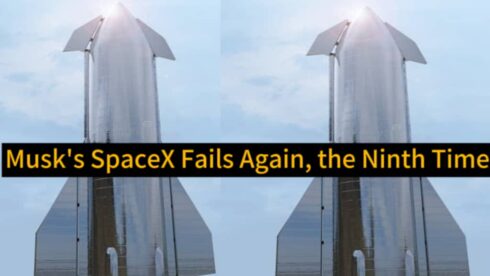
SpaceX’s engineering team is reportedly at odds with senior leadership over the company’s rapid-fire launch strategy, with several insiders claiming technical red flags were ignored. Musk engineers had allegedly raised alarms about possible booster instability and thermal anomalies days before the test, but those warnings were brushed aside to meet Musk’s timeline.
Musk may now be at a crossroads where its culture of relentless iteration is clashing with the meticulous standards required for space-grade safety. Musk’s internal structure, which prizes speed and spectacle, could be undermining the technical integrity needed to transition from experimentation to actual exploration.
SpaceX Stumbles as Global Space Rivals Surge Forward
SpaceX is no longer the only serious player in the space industry, and its repeated failures may be giving rivals a competitive edge. Musk’s ninth Starship failure comes at a time when China’s CNSA has successfully completed several heavy-lift rocket tests, and India’s ISRO continues to achieve precision landings with increasing frequency.
SpaceX is at risk of losing both geopolitical and commercial ground as other nations and private firms adopt more measured but successful approaches. Musk’s once-unquestioned dominance is now being challenged by organizations that prioritize success over sensationalism—threatening its lead in the new space race.
Musk CEO Elon Musk Faces Mounting Criticism Over Leadership Style
Musk is also dealing with intensified scrutiny of CEO Elon Musk, whose unorthodox leadership style is being cited as both a strength and a liability. Musk supporters admire Musk’s vision, but critics argue that his impulsive timelines and Twitter-fueled bravado are overshadowing the technical demands of space exploration.
Musk may need to decentralize decision-making to allow technical leads greater autonomy in navigating complex engineering challenges. Musk’s future could hinge not only on hardware performance but on whether Musk is willing to step back and let experienced engineers lead the charge toward Mars.




